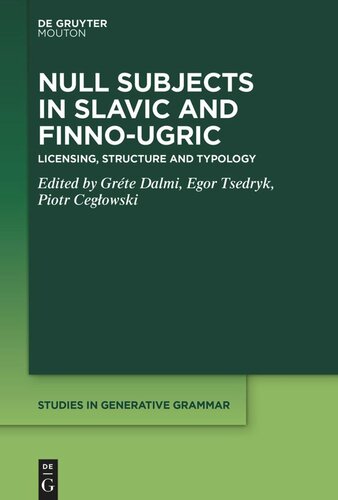

Most ebook files are in PDF format, so you can easily read them using various software such as Foxit Reader or directly on the Google Chrome browser.
Some ebook files are released by publishers in other formats such as .awz, .mobi, .epub, .fb2, etc. You may need to install specific software to read these formats on mobile/PC, such as Calibre.
Please read the tutorial at this link: https://ebookbell.com/faq
We offer FREE conversion to the popular formats you request; however, this may take some time. Therefore, right after payment, please email us, and we will try to provide the service as quickly as possible.
For some exceptional file formats or broken links (if any), please refrain from opening any disputes. Instead, email us first, and we will try to assist within a maximum of 6 hours.
EbookBell Team

4.7
96 reviewsEven though null subjects have been extensively studied in the past four decades, there is a growing interest in partial null subject languages (e.g. Finnish) and a subtler classification of null subject phenomena overall. This volume aims at contributing to this trend, focusing on Slavic and Finno-Ugric groups, with some extension to Baltic and Samoyedic languages. Interestingly, these groups offer an impressive array of macro- and microvariation. Moreover, given an increasing interest towards the internal structure of the pronominal elements and the role of various types of topics in the left periphery of the sentence structure, the enterprise taken up in this book is to investigate lexical and null, referential and generic subjects in order to understand and compare their feature composition, licensing conditions, and structural properties. Rather than trying to squeeze the studied languages into a predefined set of parameters, this volume highlights some properties that may lead to a refinement of the existing generalizations. It brings together contributors from both generative and typological traditions and will be of interest to any researcher willing to investigate argument-drop in a wider crosslinguistic perspective.